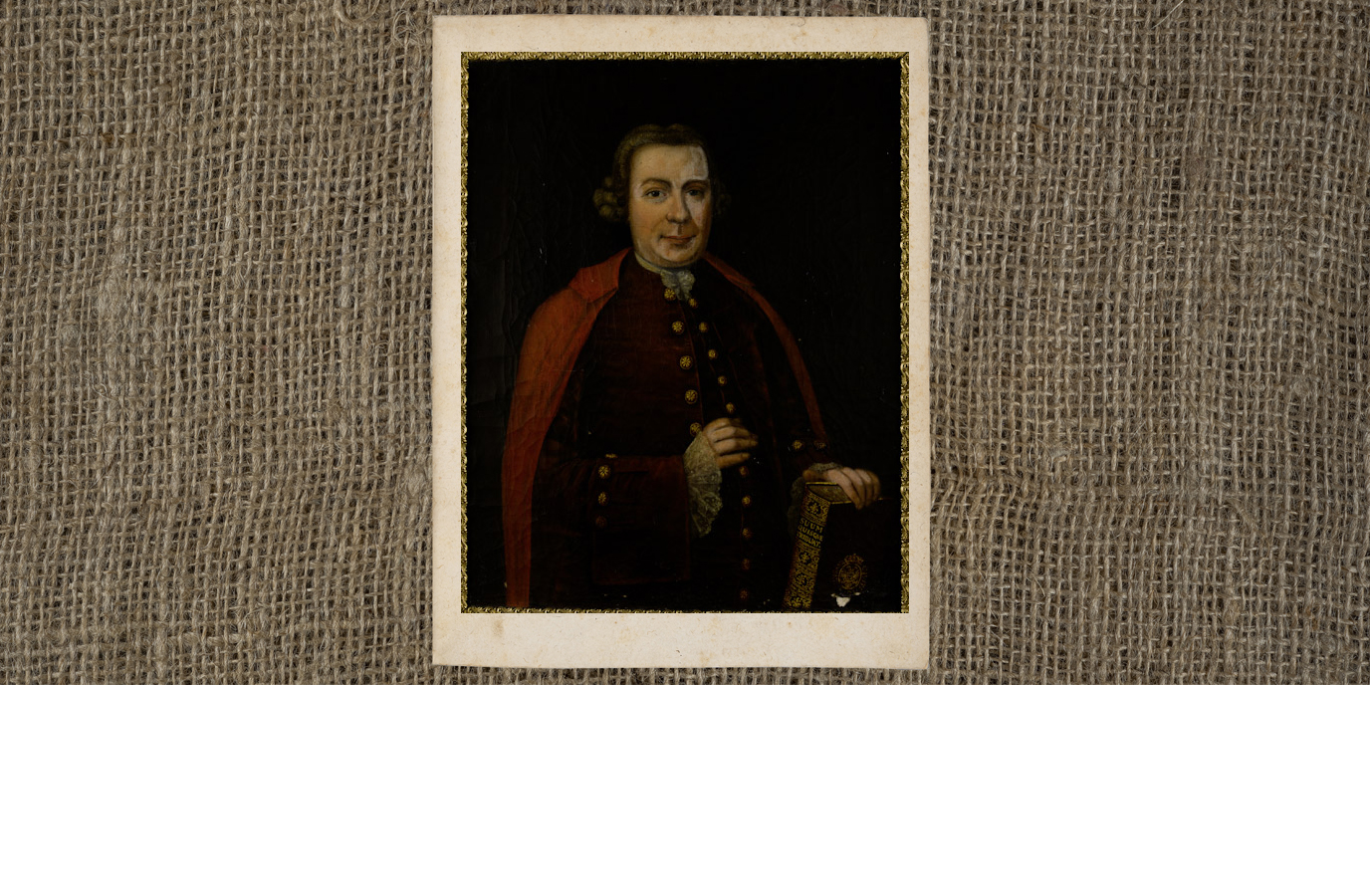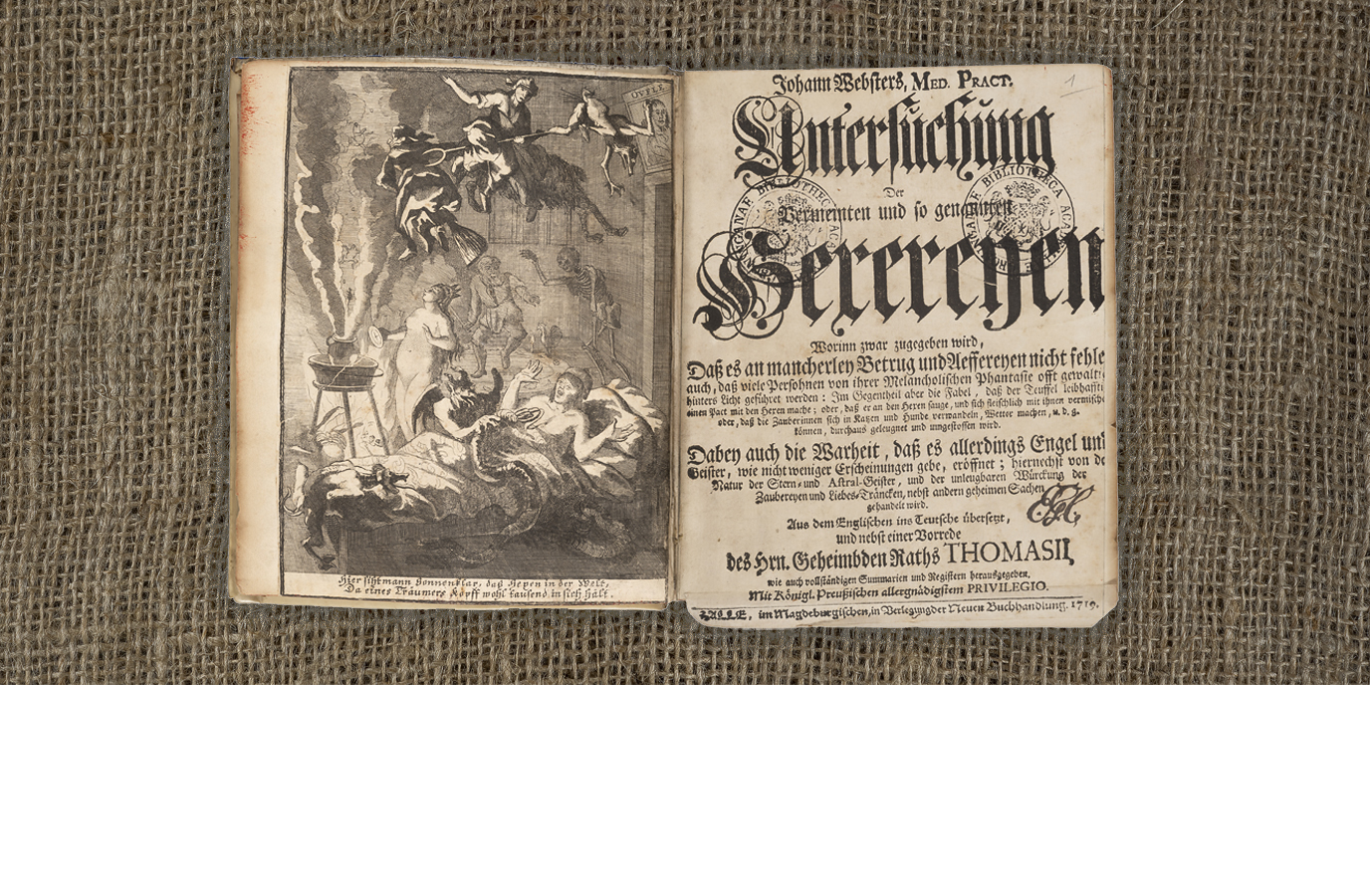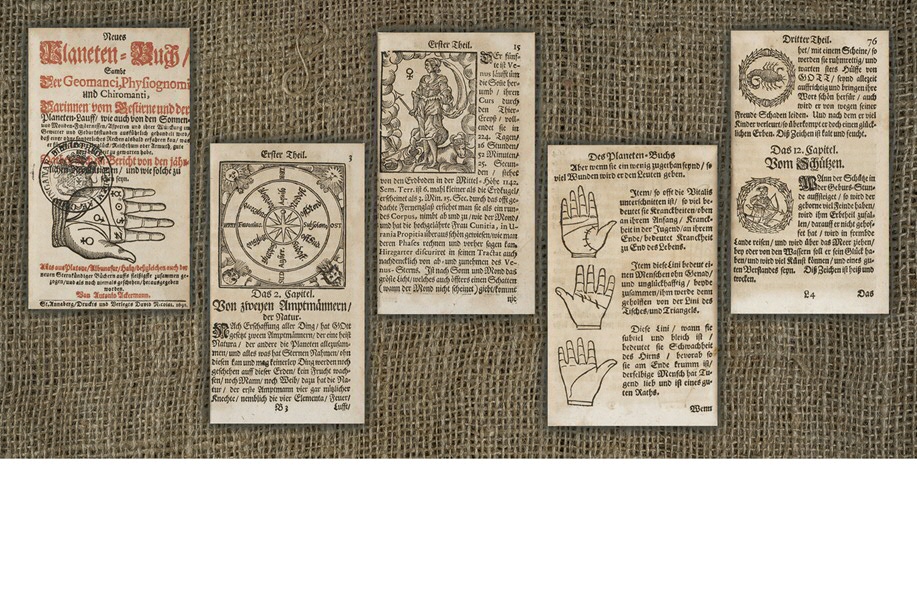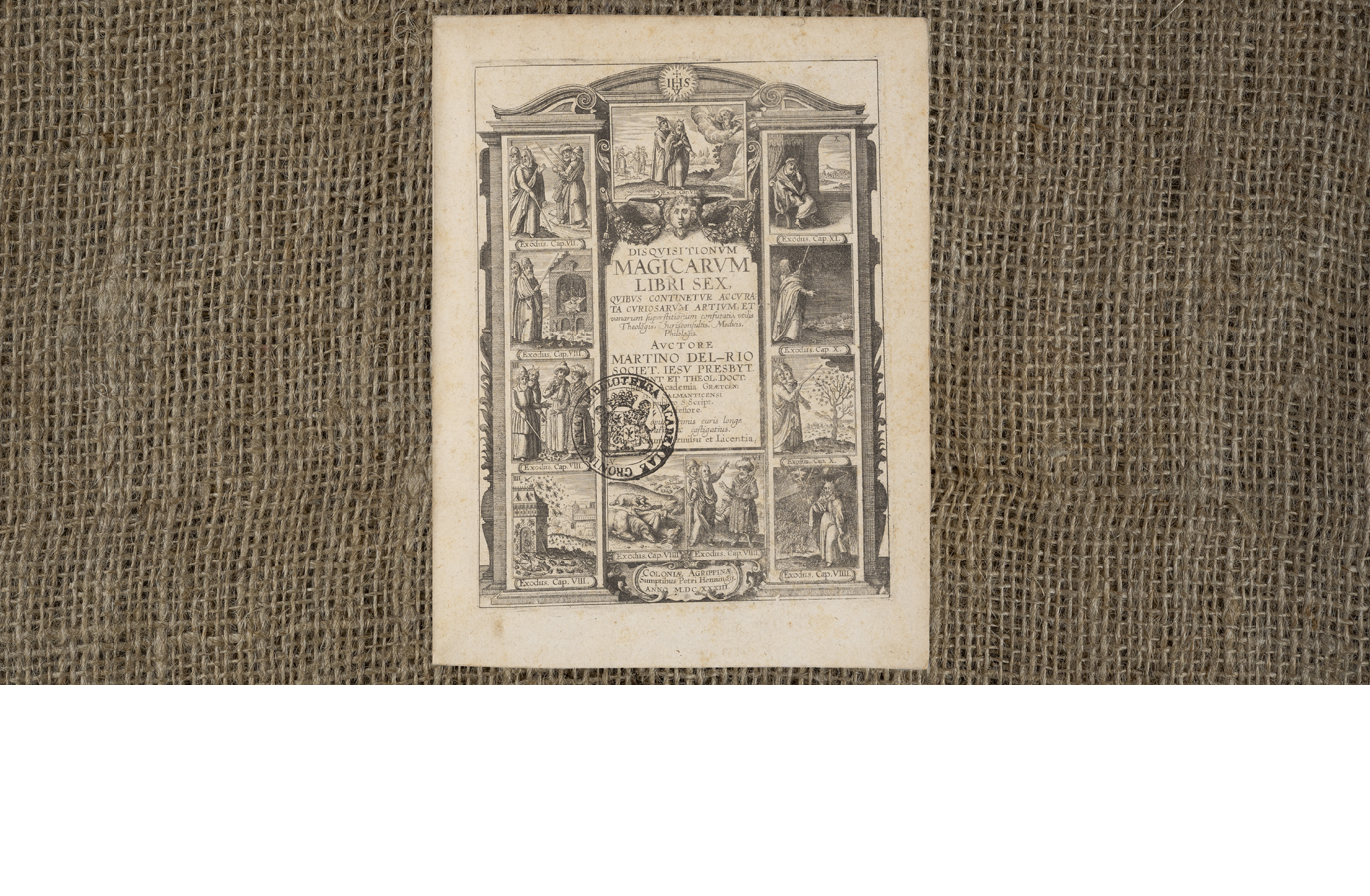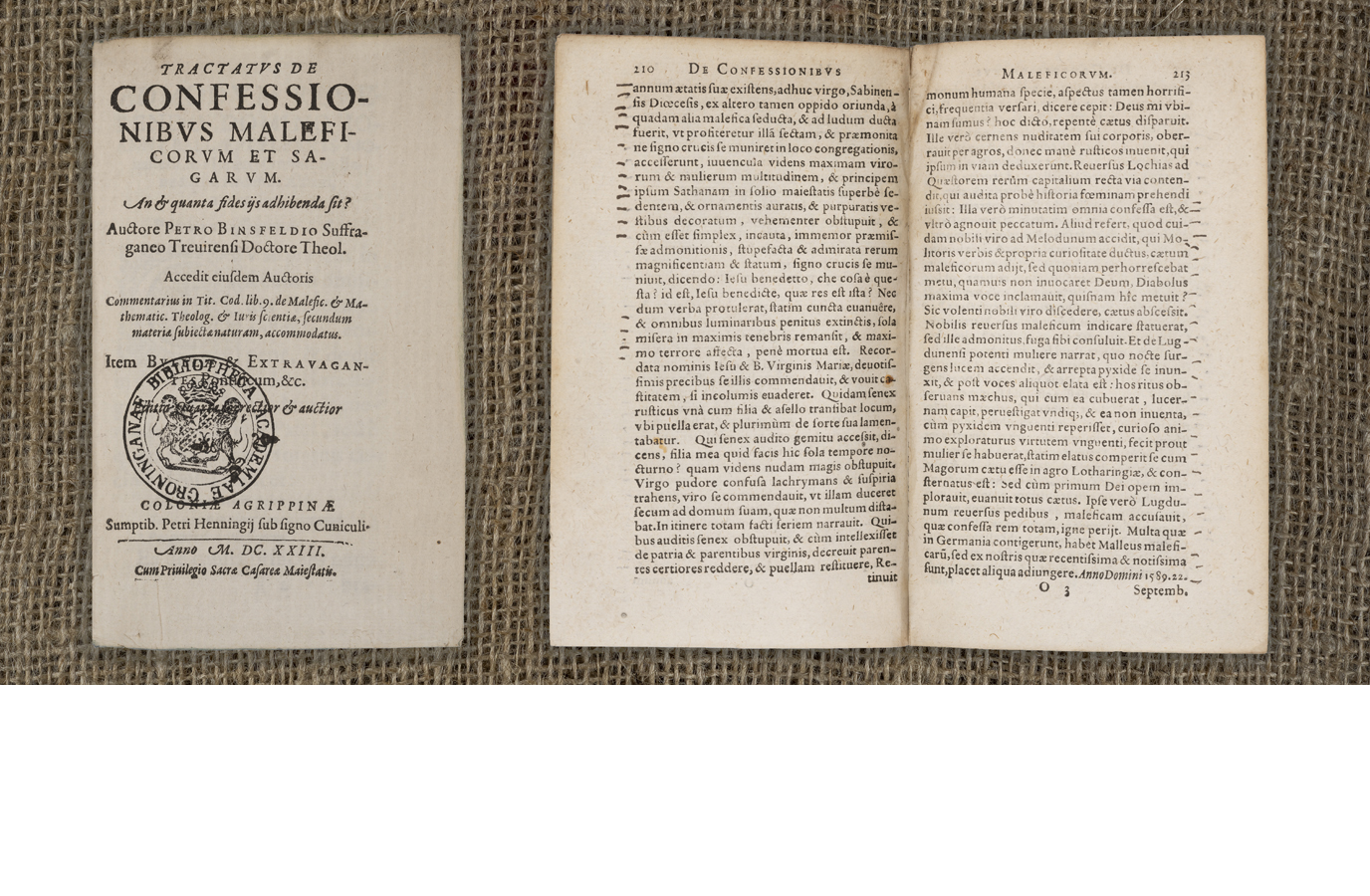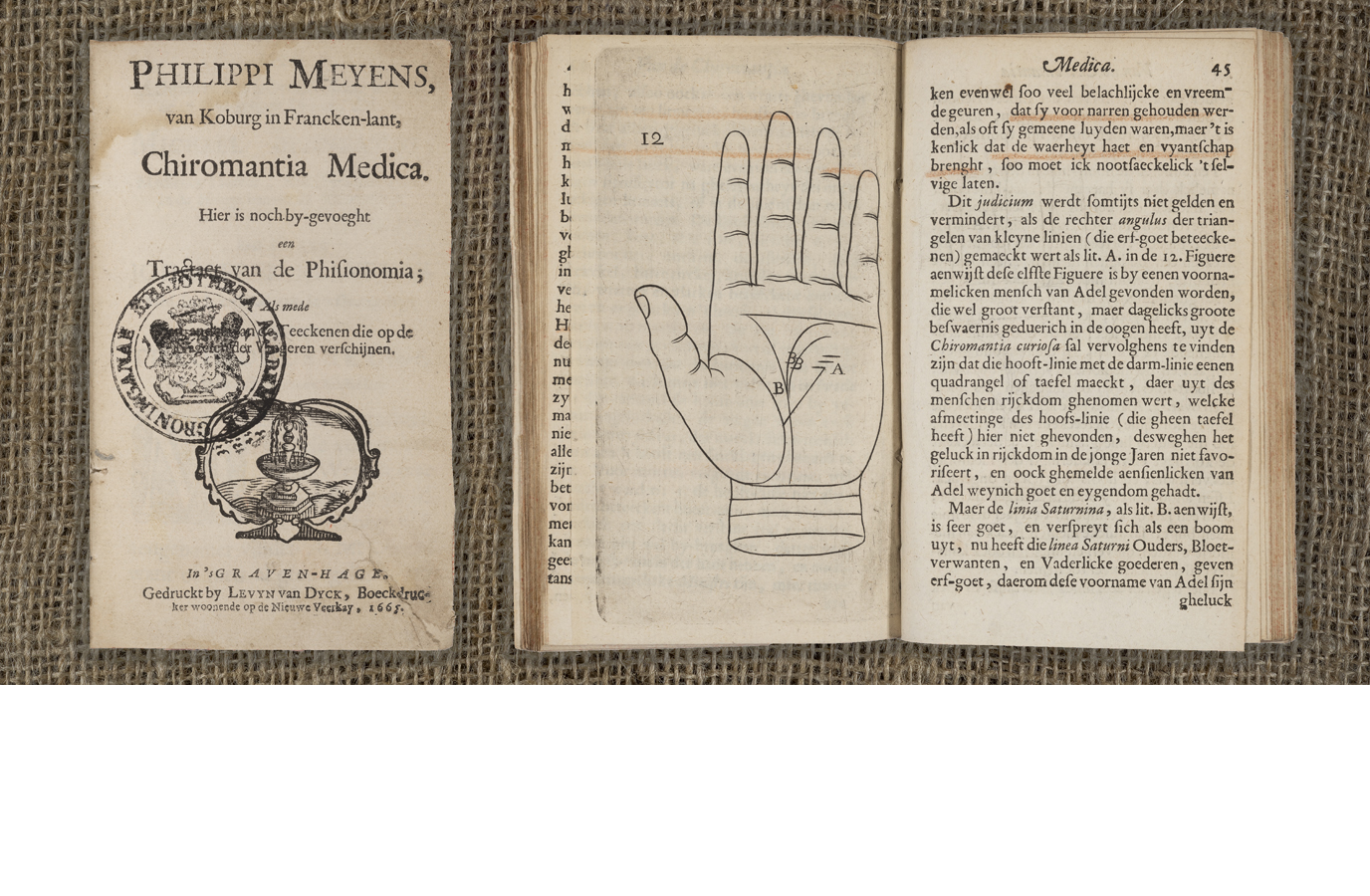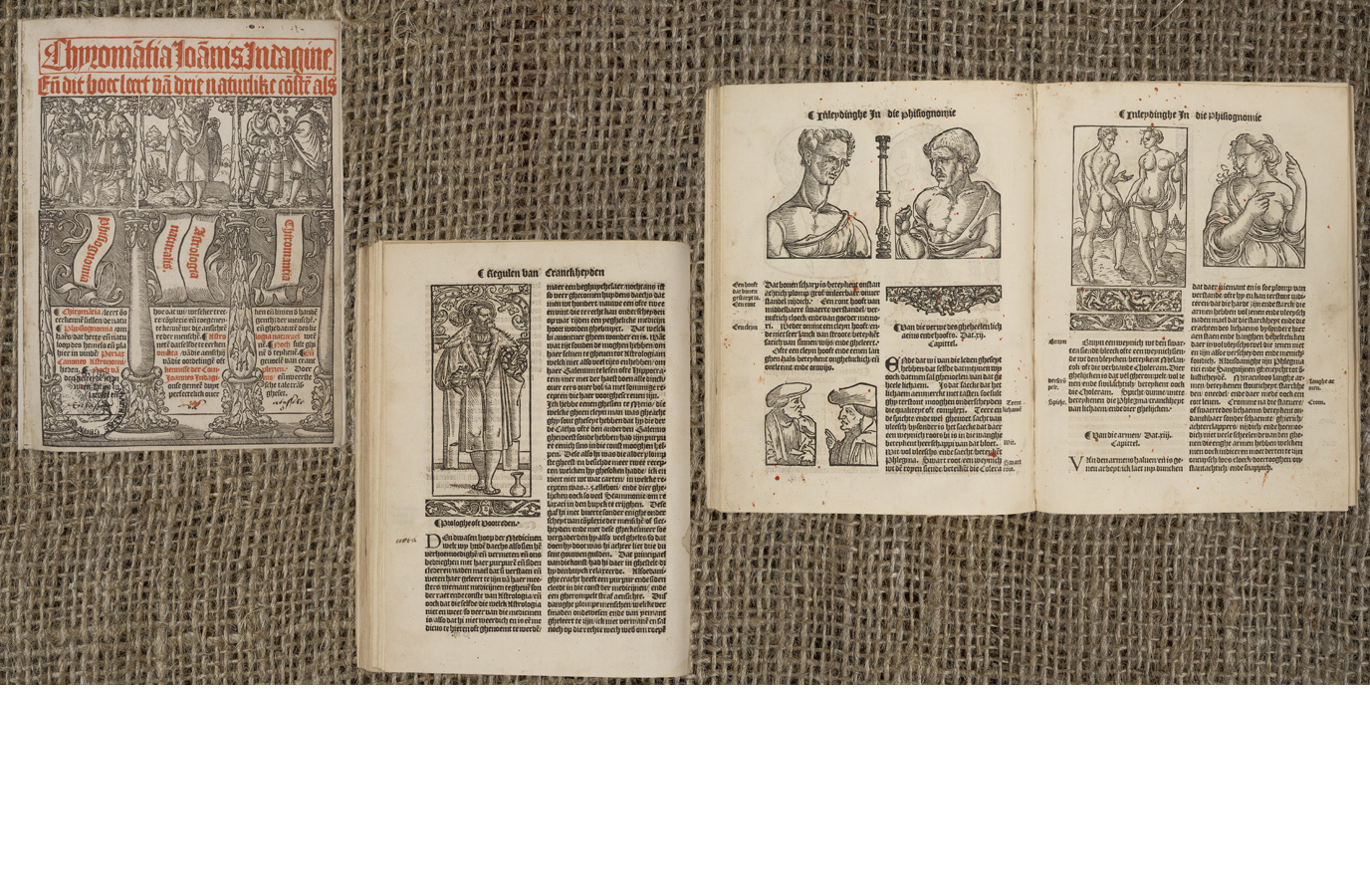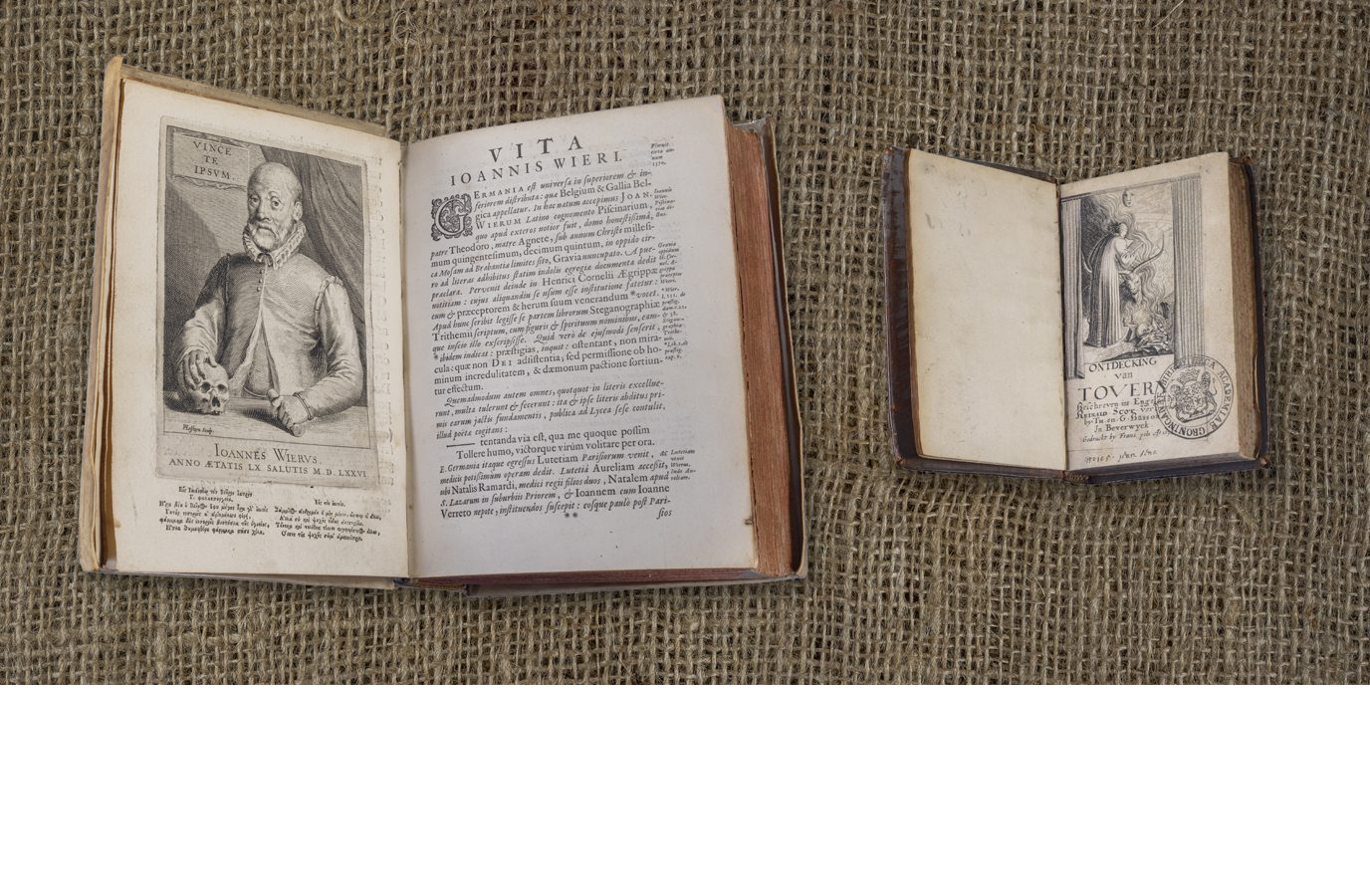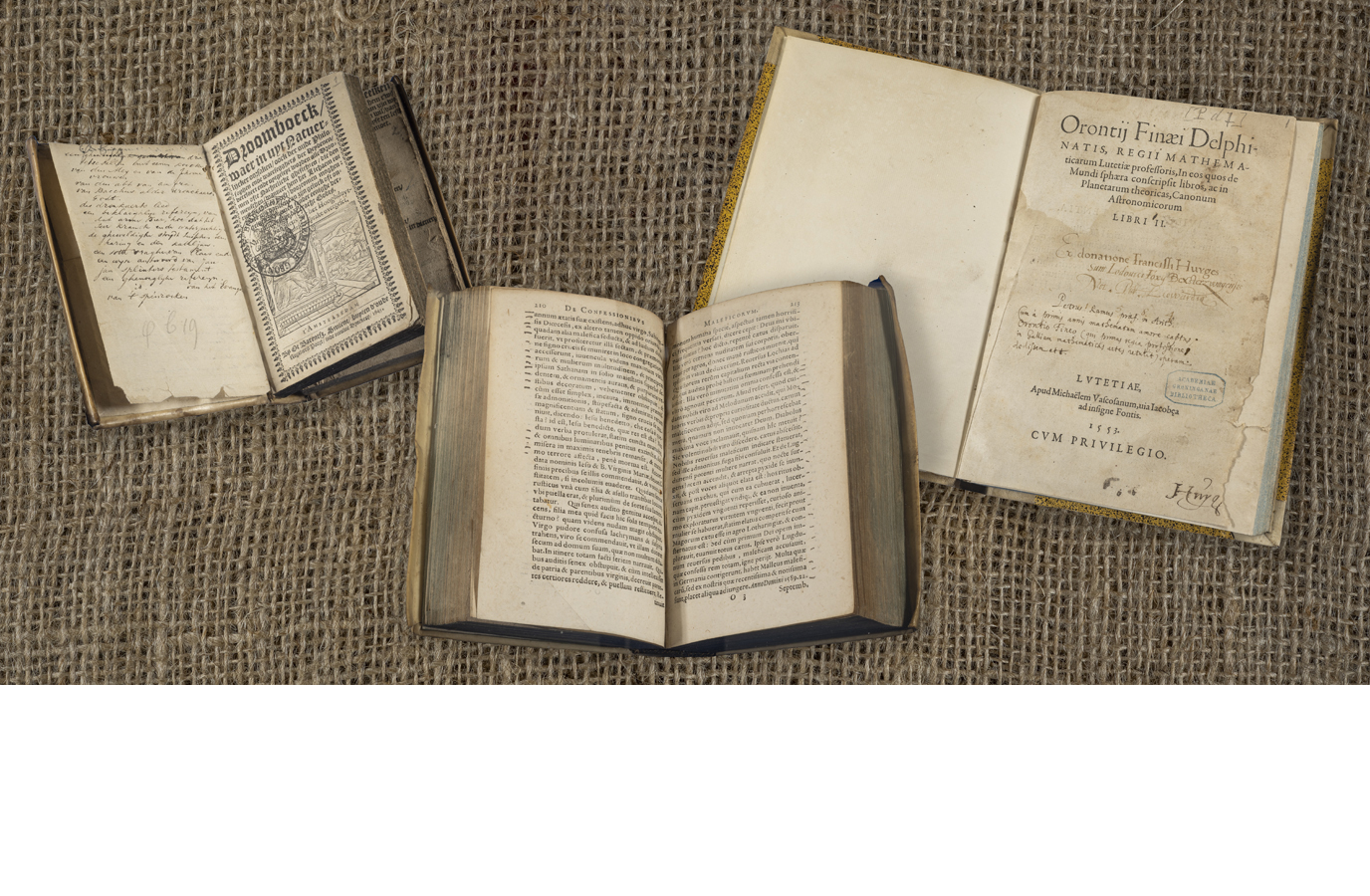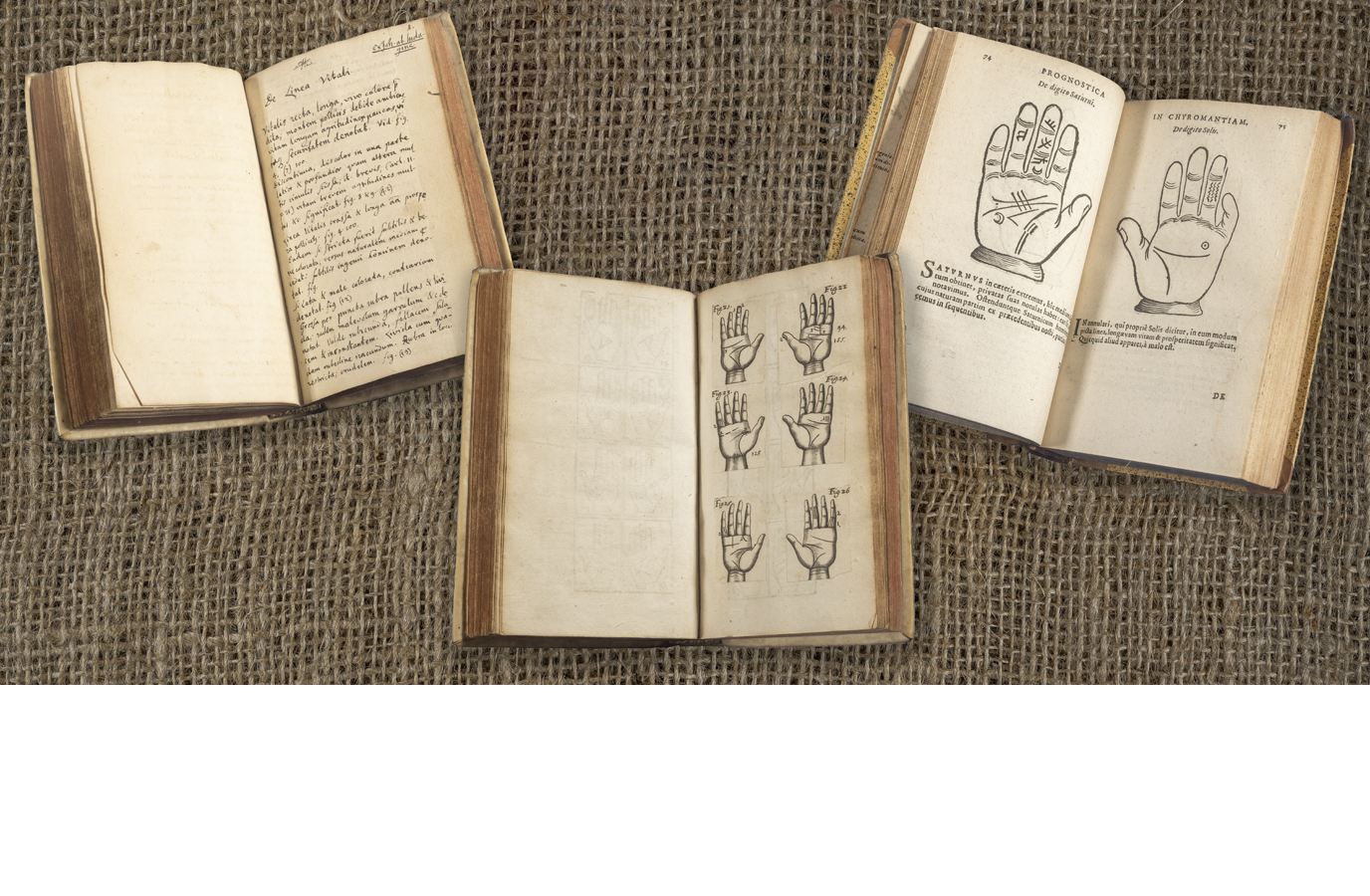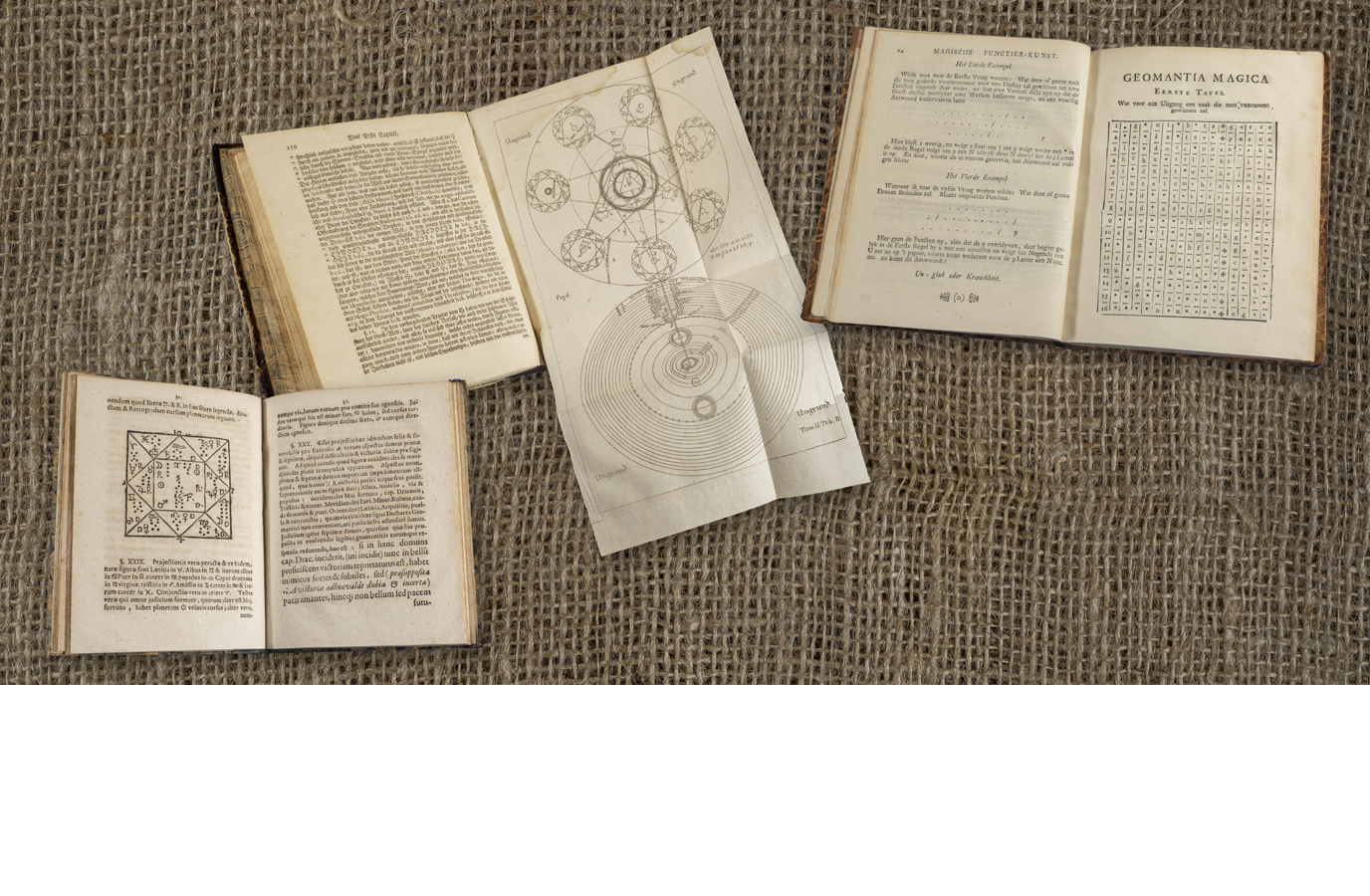Witchcraft in Groningen? The Nauta Collection
In 1807 the University Library was offered a collection of books that gave new meaning to the word ‘special’ in ‘special collections’. What the Library received was a collection of more than 300 works (1503-1801), concerning not only conventional subjects such as chronology, mechanics and astronomy, but also magic, wizardry, witch prosecution, divination, alchemy, astrology, demonology, theosophy and the art of palm reading. Although we might be tempted to characterise all these concepts under the header of witchcraft, concepts like divination, astrology and alchemy were once considered to be sciences, rather than the pseudo-sciences or magical concepts we characterise them as today.
The collection had belonged to Hindrik Jan Nauta (also called Henricus Johannes or Hendrik Jan) who had passed away in 1807. Nauta was born on the 10th of April 1735 in Groningen as the youngest son of his father Jacob Hindriks Nauta and his mother Wobbina Bregtie Werumeus. At the age of seventeen, in December of 1752, Nauta was enrolled into the liberal arts (grammar, dialectics and logic, rhetoric, arithmetics, geometry, music and astronomy) at the University of Groningen. This education was to prepare Nauta for his further studies in law. On the 23rd of May 1761 he was promoted on his dissertation titled De Rebus Nullius. In this thesis, Nauta describes what he considers to be the rules of property with regard to things that belong to nobody. After this, Nauta likely came to be the bookkeeper of the ‘Stads Pontkamer’, a tax office in Groningen.
The collection could possibly show traces as to why a seemingly normal man such as Nauta would have acquired these remarkable books. Among other works, we find in this collection the famous Disquisitiones Magicae (Investigations on magic, 1633), written by Martin Del Rio (first edition 1599). This book is nowadays seen as the work that brought the ideas of witch prosecution to the Catholic Low Countries. Nauta also owned two editions of the Tractatus de confessionibus maleficorum et sagarum (1605, 1623), written by Peter Binsfeld in 1589. This treatise explains how to expose and prosecute witches and wizards and was most likely of influence on the jurisdiction concerning witch trials in seventeenth century Germany, for example in Bavaria. In the 1623 copy of this book, we find small dashes in the margins, as if one of the owners of the book tried to emphasize the importance of certain paragraphs. If it was Nauta who made these marginalia, it might mean that he thought that he had to prepare himself for a legal case to do with witchcraft. The idea that Nauta was under this impression is not wholly unimaginable, since, between 1775 and 1800, legal cases concerning people who were said to be bewitched, were still dealt with quite regularly in the Province of Drenthe.
Nevertheless we also find books in the collection that try to disprove the existence of witches, magic and divination. We find in the collection two Dutch editions of The Discovery of Witchcrafte (1609, 1638), written by Reginald Scot in 1584, as well as the collected works of Johann Weyer (1660), containing his De praestigiis daemonum & incantationibus ac venificiis, in which Weyer describes why witches should not be prosecuted. Although this could point towards the idea that Nauta was sceptical about the subject himself, it could well be that Nauta meant to educate himself on the stances of both sides of the discussion, to form a well-read opinion for himself.
During the 1700s, the belief in the occult decreased among the (higher) educated. Nevertheless, this was not at all a uniform process. There were probably still scholars that believed in such things well until 1800. The belief in the occult remained even longer among those that were of a lower education or that had no education at all. Even though Nauta probably just had, like many of his contemporaries, a remarkable interest in the subject, we should not rule out the possibility that Nauta had more in mind with his collection of remarkable books.
Would you like to see the books in the Nauta collection? You can request them by going to https://rug.on.worldcat.org via the signature nu: uklu nauta [number]
| Last modified: | 06 August 2020 11.23 a.m. |


